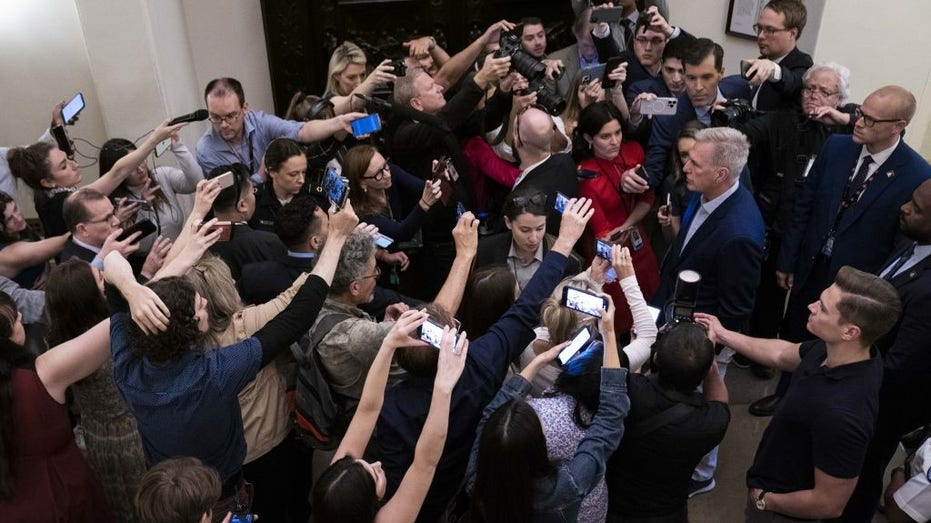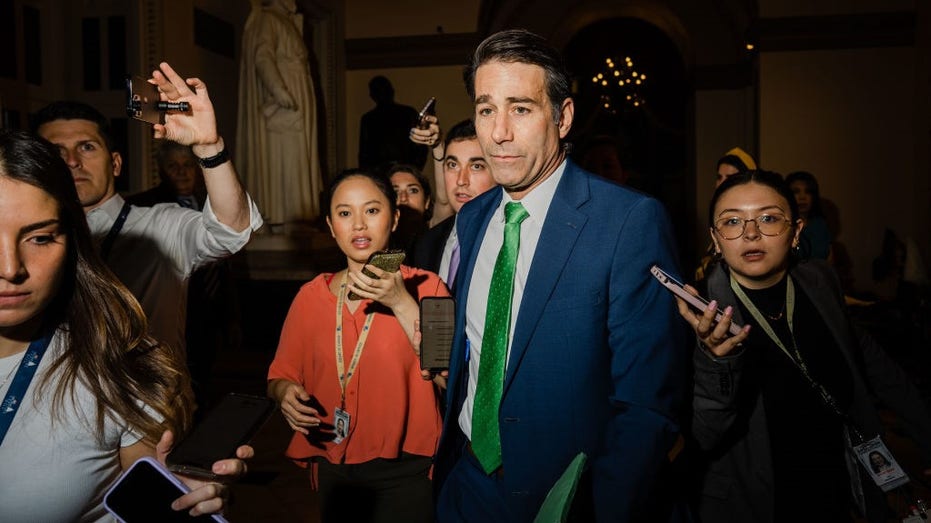Yellen estimates government will run out of cash by June 5 without debt ceiling agreement
Pressure for a deal lessens since she had previously said it could run out as early as June 1
McCarthy remains optimistic about debt talk progress
Fox News’ congressional correspondent Chad Pergram details the ongoing debt negotiations as the default deadline looms.
Treasury Secretary Janet Yellen told Congress Friday that the U.S. government is now expected to run out of cash to pay its current obligations by June 5, updating her previous estimate that said the day could come as early as June 1.
"Since January, I have highlighted to you the risk that Treasury would be unable to satisfy all of our obligations by early June if Congress did not raise or suspend the debt limit before that time. In my letters, I also noted that I would continue to update Congress as more information became available," Yellen wrote to House Speaker Kevin McCarthy, R-Calif.
"Based on the most recent available data, we now estimate that Treasury will have insufficient resources to satisfy the government’s obligations if Congress has not raised or suspended the debt limit by June 5," she wrote.
Yellen said she was forced to tap into an extraordinary measure not invoked since 2015 to ensure the government has enough cash on hand to operate. She outlined a series of payments that the government wants to make on time in the June 5 week, but may not be able to without an agreement to borrow more.
TOP MCCARTHY DEBT LIMIT NEGOTIATOR SAYS GOP WON'T CAVE ON WORK REQUIREMENTS: 'HELL NO'

Treasury Secretary Janet Yellen has warned Congress several times of an impending "x-date" should lawmakers fail to lift or suspend the debt limit (AP Photo/Jacquelyn Martin / AP Newsroom)
"We will make more than $130 billion of scheduled payments in the first two days of June, including payments to veterans and Social Security and Medicare recipients. These payments will leave Treasury with an extremely low level of resources," she explained. "During the week of June 5, Treasury is scheduled to make an estimated $92 billion of payments and transfers, including a regularly scheduled quarterly adjustment that would result in an investment in the Social Security and Medicare trust funds of roughly $36 billion. Therefore, our projected resources would be inadequate to satisfy all of these obligations."
Yellen has sent several letters to Congress warning about the potential economic calamity that could come from failing to raise the debt limit before the U.S. government runs out of cash to pay its obligations.
MCCARTHY BRUSHES OFF FREEDOM CAUCUS LETTER REJECTING CONCESSIONS ON DEBT LIMIT
A warning she sent to lawmakers on Monday read, "With an additional week of information now available, I am writing to note that we estimate that it is highly likely that Treasury will no longer be able to satisfy all of the government’s obligations if Congress has not acted to raise or suspend the debt limit by early June, and potentially as early as June 1."
Her Friday update gives Congress and the White House more time to reach a deal, but as of Friday afternoon, negotiators were still far apart.

US House Speaker Kevin McCarthy, a Republican from California, center right, speaks to members of the media at the US Capitol in Washington, DC, US, on Friday, May 26, 2023 (Getty Images)
Rep. Garret Graves, R-La., visited the White House Friday, and told reporters that he spoke with Office of Management and Budget Director Shalanda Young, one of President Biden's appointed negotiators. But he said work requirements for federal benefits like Medicaid remain a point of contention for the two sides.
"We did spend some time talking about, kind of, the parameters and where we are right now," Graves said of his exchange with Young.
He said of the work requirements provision, "The White House has been very difficult on this issue."
DEMOCRATS, GOP TRADE BARBS OVER WHO AMERICANS SHOULD BLAME FOR DEBT CRISIS: ‘IT’S PRETTY OBVIOUS'

Rep. Garret Graves told reporters on Friday that work requirements for federal benefits were still a major sticking point in the talks (Getty Images)
CLICK HERE TO GET THE FOX NEWS APP
Republicans have so far been pushing for the provisions passed in their Limit, Save, Grow Act, which would reduce federal spending by $150 billion from this year into the next, tighten work requirements for federal benefits and roll back key Biden administration policies. In exchange, the bill would lift the debt limit by $1.5 trillion or through March 2024, whichever benchmark is hit first.
But the vast majority of Democrats have lobbied for raising the debt limit without conditions, something even moderates in their own party have suggested was far-fetched.
Edward Lawrence contributed to this report




















